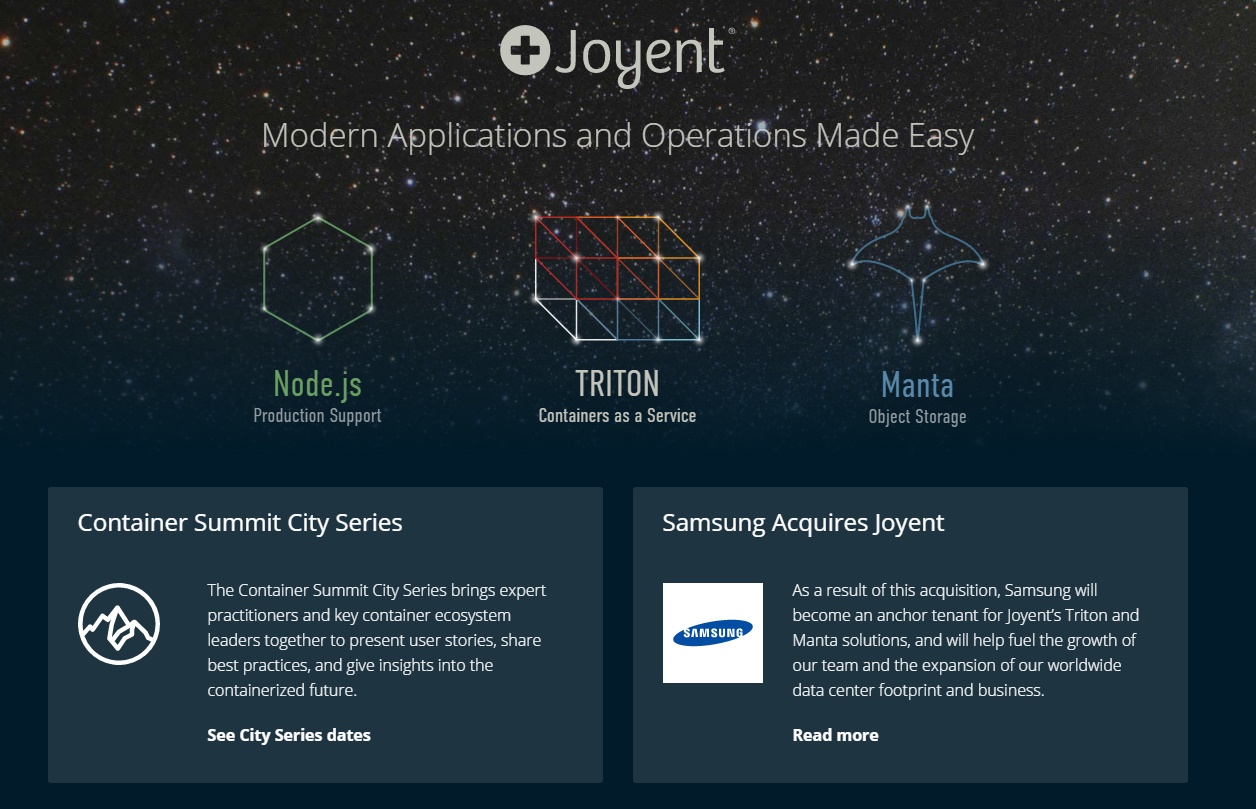Affiliate links on Android Authority may earn us a commission. Learn more.
Why did Samsung just buy a cloud computing company?
Published onJune 16, 2016

Samsung is acquiring Joyent, a US company that provides cloud services and infrastructure.
Founded in 2004 and based in San Francisco, Joyent is known for its Platform-as-a-Service and Infrastructure-as-a-Service products, as well as the widely used node.js framework and other open source software. Joyent provides cloud services to customers ranging from tiny startups to Fortune 500 corporations, competing against giants like Amazon, Microsoft, and Google.
Now Samsung is buying Joyent for an undisclosed sum. The Korean conglomerate says it will keep Joyent at arm’s length. The cloud provider will keep its management team and existing customers.
Why is Samsung investing in cloud computing, an area that is outside of its traditional focus, consumer hardware?
It’s about improving user experience. From Samsung’s blog post:
As smartphones and connected-devices have taken hold across the world, cloud computing has become fundamental in providing users with exciting and reliable services and experiences on their devices. With leadership positions in both mobile and IoT, this acquisition represents Samsung’s commitment to provide a seamless user experience to millions of customers.
That may sound like meaningless corporate speak, but modern smartphones – just about any modern device, really – are fully dependent on a vast and invisible infrastructure of servers, networking equipment, and powerful software. From basic things like SMS, to AI-powered services like Google Assistant or Siri, smartphones are absolutely packed with cloud-based services. Owning the cloud end of the stack, in addition to the user facing components, would allow Samsung to do a better job for its end users. In theory, that should translate to better device sales.
Smartphones are completely dependent on the cloud.
Following the acquisition, Samsung will become Joyent’s biggest client. That will allow the Korean group to wean itself off Microsoft and Amazon, its current cloud providers, or at least improve its negotiation stance.
The cloud will play a crucial role in the transition to the next big platforms. The Internet of Things, self-driving vehicles, virtual reality, these are all fields where Samsung is already active. And you can bet that Samsung is already secretly working on its own AI initiatives. All of these efforts will require a strong cloud component.
This is the third US-based company that Samsung acquired in the last couple of years, following IoT provider SmartThings and LoopPay, whose payment processing technology formed the basis of Samsung Pay.